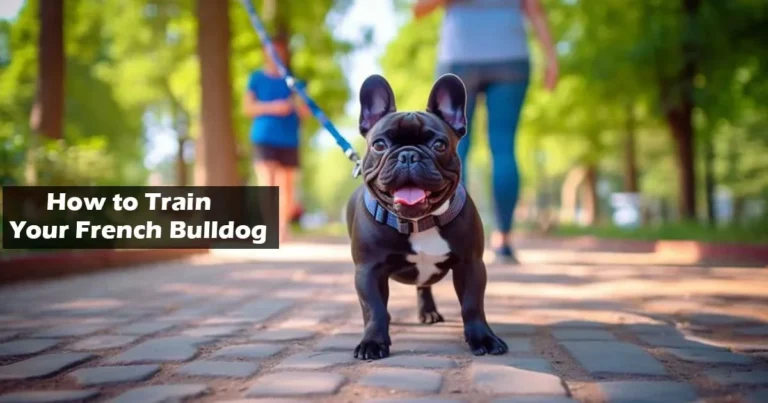French Bulldogs: Complete Guide to Care, Traits & Costs
French Bulldogs, affectionately known as “Frenchies,” are small, muscular companion dogs celebrated for their bat-like ears, expressive faces, and friendly temperament. Originally bred in England and later refined in France, they’ve become global favorites for city dwellers and families alike due to their adaptability, affectionate nature, and minimal exercise needs.
These dogs are incredibly social, thrive on human companionship, and are great with kids and other pets. They require consistent routines, proper nutrition, mental stimulation, and vet checkups to prevent common health issues like brachycephalic syndrome, allergies, and joint problems. Despite being prone to certain conditions, French Bulldogs are generally low-maintenance when it comes to grooming and exercise.
Perfect for apartment living, Frenchies fit into nearly any household and make loyal, loving pets. Understanding their history, personality, care requirements, and health needs is key to raising a happy and well-adjusted French Bulldog. From diet tips to quirky facts, this guide provides everything future and current Frenchie owners need to know.
- Originated in England, popularized in France.
- Famous for their bat ears and compact build.
- Great companions for families, singles, and seniors.
- Low exercise needs but high emotional dependence.
- Require proper wrinkle care and temperature control.
- Known for a stubborn streak yet love training games.
- Prone to certain health conditions requiring regular vet care.
If you’re thinking about getting a Frenchie or already have one, here’s everything you need to know to keep them healthy, happy, and full of charm.
History and Origin of French Bulldogs
The history of French Bulldogs begins in England, where they were bred as smaller versions of the English Bulldog for companionship. These dogs became especially popular with lace workers, who sought loyal, affectionate pets to keep them company.
In the 1800s, lace workers relocated to France for work and brought their dogs with them. The breed was quickly embraced by French society, refined further, and became a symbol of charm and elegance in Paris.
By the late 19th century, French Bulldogs had caught international attention. The American Kennel Club (AKC) officially recognized them in 1898, solidifying their place among the world’s favorite companion breeds.
- Originally bred as companion dogs in England.
- Brought to France by lace workers during the 1800s.
- Adopted and refined by French high society.
- Gained global popularity for their unique appearance.
- Official AKC recognition in 1898.
- Transitioned from “ratters” to lap dogs.
- Nicknamed “Frenchies” for their Parisian flair.
Their journey from working-class England to Parisian salons is a testament to their adaptability and appeal.
Distinct Physical Characteristics
French Bulldogs are compact and muscular, with a sturdy frame and wide chest that adds to their charm. Their short stature and strong limbs make them both adorable and resilient. This unique build gives them a confident and unmistakable presence.
The breed’s standout feature is their large, upright “bat ears,” which sit perfectly atop a flat, wrinkled face. Their smooth, short coat feels soft and appears in colors like fawn, brindle, pied, and cream. These features make Frenchies instantly recognizable.
Their tails are naturally short—either corkscrew-shaped or straight—and never docked. Despite their small size, they carry themselves with a surprising amount of strength and pride. Each movement reflects their confident and lovable nature.
- Weigh between 16-28 pounds.
- Stand about 11-12 inches tall at the shoulder.
- Signature large, upright bat ears.
- Smooth, short coat in multiple colors.
- Flat, brachycephalic muzzle with expressive eyes.
- Compact and muscular body type.
- Tail is short and either straight or corkscrew-shaped.
Their unique look makes them one of the most easily recognized and adored dog breeds worldwide.
Personality and Temperament
French Bulldogs have truly magnetic personalities — affectionate, humorous, and incredibly loyal. They thrive on human connection and form deep emotional bonds with their owners, often shadowing them around the home. Their goofy expressions and playful nature give them a charming, clown-like appeal that’s hard to resist.
Although they love bursts of play, Frenchies are not overly energetic dogs. They’re perfectly happy with short walks followed by long naps on soft couches or in their owners’ laps. This balance of playfulness and laziness makes them ideal companions for both busy professionals and families with relaxed lifestyles.
French Bulldogs can be a bit headstrong, often testing limits during training sessions. However, with consistency, praise, and positive reinforcement, they learn quickly and enjoy the structure. Their emotional sensitivity means they don’t cope well with long periods of loneliness — they crave companionship and can develop separation anxiety if neglected.
- Affectionate and loyal to their owners.
- Thrive on human interaction and closeness.
- Playful with bursts of energy, but love to relax too.
- Stubborn yet highly trainable with the right methods.
- Adaptable to various family setups.
- Great with children and other pets.
- Can suffer from separation anxiety if left alone.
Frenchies are happiest when they’re part of the family action—they crave connection and companionship.
Health and Lifespan
The average lifespan of a French Bulldog ranges from 10 to 12 years, though some can live longer with excellent care. Their charming appearance comes with health vulnerabilities that owners must monitor closely. Routine wellness checks and early intervention are key to extending their lifespan.
Due to their brachycephalic (flat-faced) structure, Frenchies often experience breathing difficulties, especially in heat or after exertion. Skin issues such as allergies, rashes, and infections are also common, particularly in their facial folds. Other concerns include eye problems like cherry eye and joint issues like hip dysplasia.
Maintaining a balanced diet, managing their weight, and avoiding overexertion helps prevent complications. Regular vet visits allow for early detection of health issues and timely treatment. A proactive, preventive approach leads to a happier, healthier life for your French Bulldog.
- Lifespan ranges from 10-12 years.
- Prone to breathing difficulties due to flat faces.
- Common issues include skin allergies and eye conditions.
- Watch for hip and spine problems like IVDD.
- Regular vet check-ups are essential.
- Maintain a balanced diet and healthy weight.
- Protect them from extreme heat or cold.
Proactive care is the best way to ensure your Frenchie enjoys a long, happy life.
Grooming and Care Needs
French Bulldogs may have a short, smooth coat, but grooming is still essential for their overall health. Brushing once or twice a week helps control shedding and distributes natural oils across their skin. It also gives you a chance to check for any skin issues or unusual bumps.
One of the most critical grooming tasks involves their facial wrinkles, which can trap dirt, food, and moisture. These folds must be gently wiped clean with a damp cloth and thoroughly dried to prevent bacterial infections or irritation. Neglecting this can quickly lead to painful skin problems.
In addition to regular baths every few weeks, Frenchies benefit from a consistent grooming routine. Trim their nails to prevent overgrowth and cracking, clean their ears to avoid wax buildup, and brush their teeth several times a week. These steps help prevent infections, discomfort, and long-term health issues.
- Brush weekly to manage shedding.
- Clean facial wrinkles to avoid skin infections.
- Bathe only when needed to avoid skin dryness.
- Trim nails regularly to prevent pain or injury.
- Clean ears to prevent wax build-up and infections.
- Brush teeth to maintain oral health.
- Use gentle grooming products suited for sensitive skin.
A consistent grooming routine keeps your Frenchie looking and feeling their best.
Feeding and Nutrition
French Bulldogs have a tendency to gain weight quickly, so it’s crucial to feed them with care and precision. Portion control should align with their age, weight, and activity level to avoid obesity-related health problems. Obesity can worsen breathing issues and strain their joints, reducing quality of life.
Choose high-quality dog food specifically designed for small or brachycephalic breeds. Look for formulas rich in animal protein, omega-3 fatty acids, and nutrients that support joint, heart, and digestive health. Avoid foods with artificial colors, fillers, corn syrup, or by-products that offer little nutritional value.
Stick to a fixed feeding schedule and limit treats to training rewards or occasional healthy snacks like carrots or apple slices (no seeds). Always provide fresh, clean water and use elevated bowls to support easier breathing during meals. Consult your vet regularly to fine-tune the diet as your Frenchie grows or ages.
- Choose food with high protein and healthy fats.
- Avoid table scraps and human junk food.
- Feed on a regular schedule, not free-feeding.
- Avoid soy, wheat, and artificial preservatives.
- Include occasional fruits like apples or blueberries.
- Measure food to avoid overfeeding.
- Discuss supplements with your vet if needed.
Proper nutrition supports their energy levels, coat quality, and overall well-being.
Training Your French Bulldog
Training a French Bulldog takes a calm, consistent approach combined with plenty of encouragement. While their stubborn streak can be challenging, they genuinely want to please their owners. Positive reinforcement—using treats, praise, and affection—works far better than scolding or punishment.
Begin training your Frenchie early, ideally as a puppy, to instill good habits right away. Crate training helps with housebreaking and gives them a safe space, while leash training and basic commands build structure and confidence. Keeping sessions short and interactive makes learning feel like play.
Frenchies are intelligent but easily bored, so variety is key to effective training. Incorporate interactive toys, scent games, or puzzle feeders to mentally stimulate them during and between lessons. Consistent routines, patience, and gentle correction will lead to a well-mannered, happy companion.
- Start training early for best results.
- Use positive reinforcement methods.
- Be consistent with commands and routines.
- Crate training helps with housebreaking.
- Socialize early with people and other dogs.
- Use interactive toys for mental stimulation.
- Keep sessions short and enjoyable.
Training not only shapes behavior but deepens your bond with your Frenchie.
Living Conditions and Adaptability
French Bulldogs are remarkably adaptable and can comfortably adjust to different living spaces, from compact city apartments to spacious suburban homes. Their small size and moderate activity level make them ideal for urban dwellers. Whether you’re a single professional or part of a large family, Frenchies can easily fit into your lifestyle.
Temperature sensitivity is one of the key considerations in creating a safe environment for your Frenchie. During summer, air-conditioned spaces are crucial as their flat faces make them prone to overheating. In colder months, warm blankets, cozy beds, and draft-free zones help keep them comfortable and safe from chill-related issues.
These dogs are social and thrive on companionship, making them excellent family pets. They generally get along well with children, seniors, and even other household pets when properly socialized. Their friendly, easygoing temperament makes them a joy to have in multi-person and multi-pet households.
- Ideal for apartment living due to small size.
- Low exercise needs suit busy lifestyles.
- Sensitive to heat; never leave them in hot areas.
- Enjoy comfy beds and soft blankets.
- Friendly with kids, cats, and other dogs.
- Need interaction and should not be left alone long.
- Easy to travel with if temperature-controlled.
A Frenchie’s adaptable nature makes them excellent companions for nearly any living arrangement.
Pros and Cons of Owning a French Bulldog
French Bulldog is a joyful and deeply rewarding experience, thanks to their affectionate, clownish personalities. They thrive on companionship and form strong emotional bonds with their families. However, their sensitive nature means they require time, attention, and a stable environment.
While Frenchies have minimal grooming needs, their health care can be both frequent and expensive. Breathing issues, skin conditions, and joint problems often mean regular vet visits and a proactive care approach. It’s important for potential owners to budget both time and money for proper maintenance.
Training can be enjoyable with positive reinforcement, but their stubborn streak may test your patience. Understanding their unique temperament and medical needs ensures a smoother experience. Being informed about both the perks and challenges allows for a lifelong bond with your Frenchie, filled with love and loyalty.
- Affectionate, loyal, and fun-loving.
- Do well in small homes and apartments.
- Great with children and first-time dog owners.
- Low grooming needs but high healthcare demands.
- Prone to health issues needing proactive management.
- Can be expensive to buy and care for.
- May be stubborn during training.
With love, preparation, and proper care, the rewards far outweigh the challenges.
Fun and Unique Facts About French Bulldogs
French Bulldogs are truly nap champions—most sleep between 12 to 14 hours daily, especially if their environment is calm and comfortable. Their love for lounging makes them the perfect cuddle buddies for relaxed households. They enjoy soft blankets, warm laps, and quiet afternoons on the couch.
Though compact in size, Frenchies are surprisingly muscular and sturdy. Their bodies are built low to the ground, giving them a solid, powerful stance despite their toy-like appearance. Add to that their bold, charming personality, and they quickly become the center of attention.
One of their most endearing features is their large, upright ears, which often reflect their mood. Whether alert, curious, or excited, their “bat ears” communicate volumes without a single bark. Their quiet nature also makes them perfect companions for apartments or shared housing where noise is a concern.
- Iconic bat ears express emotion clearly.
- Great at snuggling and lounging.
- Rarely bark but alert to surroundings.
- Can’t swim well due to body shape.
- Love being the center of attention.
- Known for their clownish, playful behavior.
- Need help during birth; often require C-sections.
These quirky traits are part of what makes Frenchies so endearing and lovable.
Costs of Owning a French Bulldog
French Bulldogs are one of the pricier dog breeds, both in terms of initial cost and long-term care. Buying a Frenchie from a reputable breeder can range from $2,000 to $8,000, depending on lineage and color. Rare coat colors or show-quality dogs often command even higher prices.
Healthcare costs are a significant consideration, as Frenchies are prone to respiratory, skin, and joint issues. Veterinary bills for treatments, surgeries (like C-sections), and regular checkups can become substantial over time. Emergency visits or chronic conditions may strain the budget without proper planning.
Beyond medical care, owners must also account for premium food, grooming tools, toys, and training expenses. Pet insurance is strongly recommended to help cover unexpected health problems and ease the financial burden. Budgeting wisely ensures your French Bulldog receives the quality care it deserves.
- Average cost ranges from $2,000 to $8,000.
- Vet bills can be frequent and costly.
- High-quality food and supplements add up.
- Professional grooming may be needed occasionally.
- Budget for toys, crates, and bedding.
- Travel and boarding costs for vacations.
- Insurance helps with emergency expenses.
Being financially prepared ensures your Frenchie gets the best care possible.
Adoption and Rescue Tips
Adopting a French Bulldog offers a meaningful way to change a dog’s life—and yours. Many Frenchies in shelters or rescue centers have been surrendered due to health needs or lifestyle changes. Giving them a second chance can be incredibly rewarding, emotionally and ethically.
Start your journey by reaching out to local animal shelters, French Bulldog rescue groups, or breed-specific organizations. These groups often have not just puppies but also adult and senior Frenchies in need of stable, loving homes. Adoption fees usually cover vet care, vaccinations, and sometimes spaying or neutering.
Before welcoming your new companion, prepare your home with essentials like a cozy crate, nutritious food, soft bedding, and safe toys. Set up a calm, secure area where they can adjust comfortably. Being ready ensures a smoother transition and builds a strong foundation for your new life together.
- Look for breed-specific rescues in your region.
- Consider adopting adults or seniors.
- Ask about health history and temperament.
- Visit the dog multiple times before deciding.
- Prepare your home in advance.
- Schedule a vet visit soon after adoption.
- Give time and patience for adjustment.
Adopting a Frenchie means saving a life and gaining a loyal companion.
FAQs
- Do French Bulldogs shed?
Yes, moderately. Weekly brushing helps.
- Are French Bulldogs hypoallergenic?
No, they are not.
- Can they swim?
No, supervise near water.
- What is the best diet?
High-protein, low-fat, small-breed-specific.
- Are they easy to train?
Yes, but they can be stubborn.
- How long do they live?
Around 10-12 years with proper care.
conclusion
French Bulldogs are affectionate, adaptable, and make exceptional pets for people of all lifestyles. While they have specific needs, the love and joy they bring are immeasurable.
If you want a companion who’s loyal, charming, and a little quirky, a Frenchie could be the perfect fit. Just be prepared for snuggles, snores, and lots of love!





